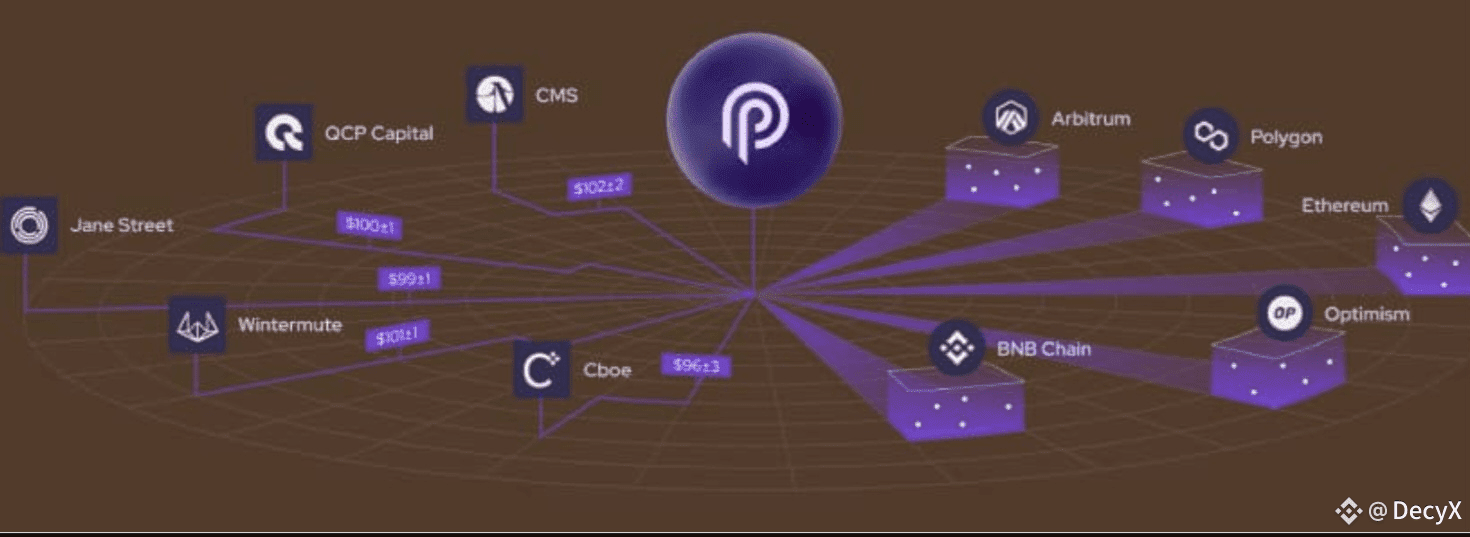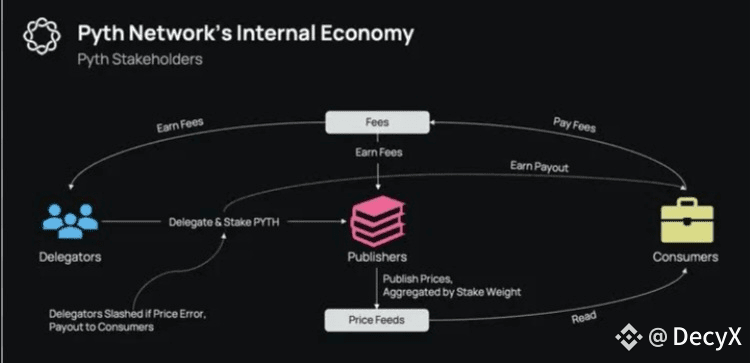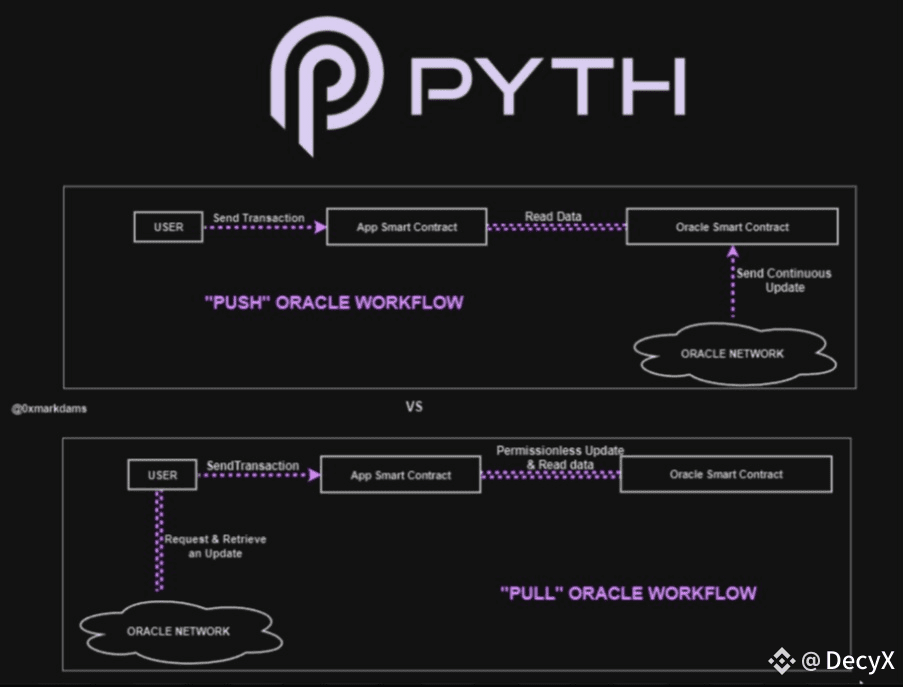In today’s fast-moving financial world, decisions are made in milliseconds. Oracles delivering stale or delayed data cost users money, trust, and sometimes safety. Pyth isn’t just an oracle-it’s building infrastructure that bridges traditional finance, on-chain innovation, and randomness in ways that make DeFi feel less like guesswork and more like precision engineering.

Integrations with TradFi & Blooming Institutional Trust
Revolut joined Pyth as a publisher of its market data to enable dApps to use quote-level asset pricing from a major digital bank with over 45 million users. This contributes to the reliability of feeds for both builders & end users.
AMINA Bank, a Swiss regulated entity, became a trusted data provider in the Pyth ecosystem, signaling that real banks see utility and trust in making their data public, decentralized, and usable by Web3 apps.
Sony Group’s Soneium blockchain integrated Pyth Price Feeds from day-one. Developers building on Soneium now have access to real-time data for assets, essential for both gaming, DeFi, and entertainment experiences.
Entropy: Not Just Prices, But Provable Randomness
Pyth launched Entropy V2, an upgraded on-chain randomness service across dozens of EVM chains. New features include configurable gas limits for callbacks, better error reporting (so devs can debug why a randomness callback failed), and more resilient architecture. Over 10 million randomness requests have already been served.
Use cases are growing: NFT mints that need fair trait assignment, prediction markets needing unpredictable events, and gaming platforms where randomness must be verifiable and tamper-resistant. Entropy’s improved reliability means these can operate without frequent manual fixes.

Pull Oracle Model & Cost Efficiency
Traditional oracles push updates on chain whether they’re used or not, which adds persistent gas overhead. Pyth’s pull-based model means apps pull updates only when needed. That reduces cost, improves scalability, and avoids paying for unused data.
The network supports 500+ price feeds across many blockchains, including crypto, equities, FX, commodities. Developers across EVM chains are leveraging feeds in both DeFi and hybrid use-cases (crypto + traditional financial assets).
Metrics, Traction & Emerging Patterns
In Q2 2025, Entropy’s usage jumped ~78% from the prior quarter; millions of randomness requests handled. Constant increase in adoption suggests apps are trusting Pyth not just for price but for random events too.
Number of blockchains receiving Pyth feeds surpassed 100 with continuous expansion into newer chains. That means builders choosing chains later in the adoption curve still get access to high-fidelity market data.
Partnerships with financial institutions and banks (like Revolut, AMINA Bank) show mainstream entities want their data out there, not hidden-driving transparency, accountability, and better forecasting in DeFi and hybrid financial systems.
Why This Perspective Matters
For DeFi developers: having access to reliable randomness, real-time data, and integrations with traditional banks reduces friction and risk. Less need to spin up separate infrastructure just to get quality data.
For users: predictable behavior, fairness, and transparency matter. Randomness that’s provable means less chance of biased or manipulated game mechanics or price feeds. Better data means fewer slippage losses, better pricing.
For institutions and regulators: when on-chain pricing is supported by real banking data and transparent oracles, the bridge between regulated finance and DeFi becomes more stable, attracting capital that might otherwise stay away.

Conclusion - Pyth as the Foundation of On-Chain Trust
Pyth isn’t just solving the oracle problem-it’s redefining what data and randomness can mean in Web3. By bridging traditional financial institutions, enabling randomness as a core service, optimizing cost with pull models, and delivering real-time high-fidelity price feeds, Pyth is emerging as backbone infrastructure for both builders and users. The future of DeFi will be built on reliable oracles, but the future of trust will be built by protocols like Pyth that treat data as sacred, not incidental.
@Pyth Network #PythRoadmap $PYTH
